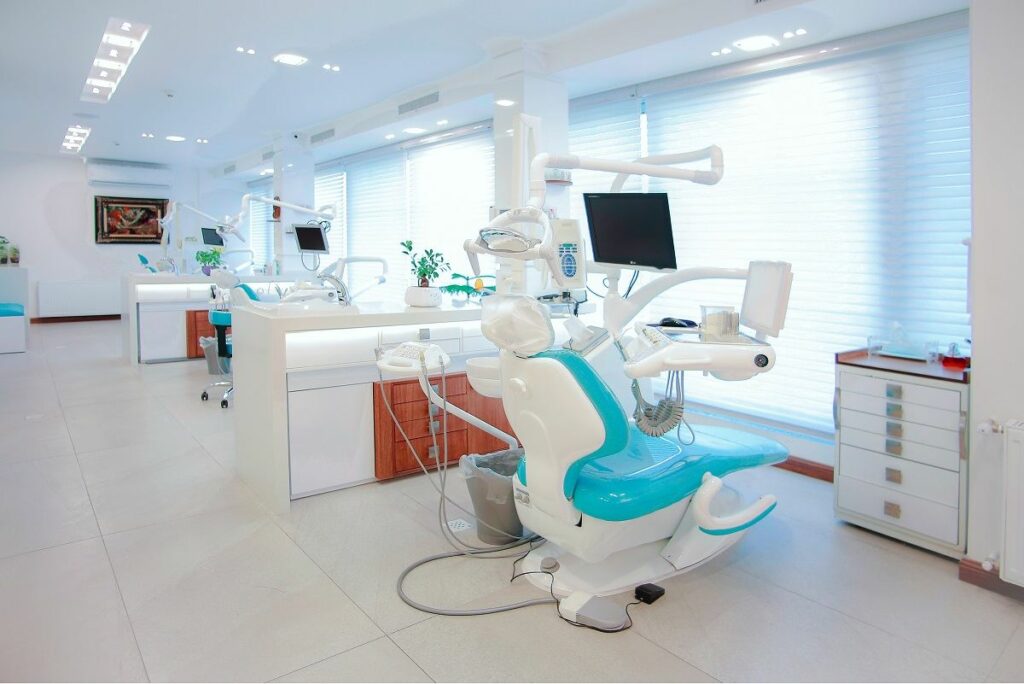What are the Options After Completing a Dentistry Degree in Europe?

Table of Contents
5+ Career Paths Available After Acquiring a Dental Degree in Europe
Did you know that getting a dentistry degree in Europe could lead to a variety of viable career paths beyond just becoming a general dentist? Nowadays, attaining a dental degree presents a treasure trove of career prospects and opportunities.
The dental industry is thriving and constantly growing, thanks to the world's steady population increase, as well as the vastly improved life expectancies across the globe. Subsequently, the demand for dental professionals is higher than ever before.
In this article, we will explore the many career paths attainable by dentistry graduates. We will also provide valuable insight to help you navigate the job market and choose what would work best for you.
Join the dental workforce


Let's start with the obvious and most popular option. Graduates from dentistry programmes in Europe can enter the workforce by joining private dental clinics, hospitals, or public healthcare. To the majority of graduates, this is the most natural career path, as you can easily attain financial stability and improve your skills through hands-on clinical work. Additionally, you will be able to develop your own professional network and start making a name for yourself.
One of the most popular options for dentistry graduates is starting out in public healthcare. This option provides dentists with the opportunity to work in a public health setting, treating patients daily and gaining valuable experience. Public healthcare positions are typically government-funded, and while the salaries may be lower than that of private practice, they offer excellent job security, benefits, and the opportunity to help people directly every day.
We recommend joining the workforce if you prefer a hands-on approach to learning. This career path works best for people who believe that working in the field directly is the best way to improve their capabilities as dentists. After all, experience is the greatest teacher.
Start your own private dental practice


Another of the most popular career paths for dental school graduates is opening your own private practice. This option can be challenging but immensely rewarding, as it offers the opportunity to become your own boss, set your own working hours, and develop your own unique approach to patient care.
However, starting a private practice requires significant time and financial investments, such as purchasing or leasing equipment, hiring staff, and developing a marketing plan to attract patients. Additionally, you will need to secure a suitable location for your clinic.
Opening your own private dental practice isn't for everyone, as it requires a ton of dedication, hard work, and a readiness to take risks. However, you can thrive as a successful and independent dentist if you are a passionate, business-oriented person with the necessary drive and skills.
Further education and specialisation in dentistry
It goes without saying that in order to become a successful dentist, you need to first go through a high-quality European dentistry course at an accredited university.
Finding the right dental school can be a difficult and exhausting process, and that's one of the reasons why we created Medlink Students. We have a large team of dedicated professional advisors who are experts at guiding students toward finding the best university according to their requirements and goals. Don't miss out on the chance to kickstart your successful career in dentistry - sign up for a free consultation today! Please keep in mind that we specialise in finding the best undergraduate programme for students and cannot recommend postgraduate courses.
After completing your standard dentistry degree in Europe, a viable option is to dedicate yourself to further education and specialisation in the field. Pursuing a dental specialist degree will not only take your knowledge and skillset to the next level but will also increase your competitiveness in the job market.
The classic route is to continue your studies at one of the many excellent medical universities in Europe that offer postgraduate degrees. This will enable you to choose a specific area of dentistry that is best suited to you and specialise in niche fields such as orthodontics, paediatric dentistry, or oral surgery.
An alternate route toward dental specialisation in Europe is to undertake specialised training and gain certification in a particular area of dentistry. These certifications can range from short courses to long-term dentistry programmes. There are many excellent dental associations and regulatory bodies that offer dental certification courses in Europe, such as the European Society of Endodontology or the European Academy of Esthetic Dentistry, which can help dentists achieve greater recognition and credibility in their areas of expertise.
If studying is your passion and you are interested in a specific area of dentistry, then pursuing further education and specialisation is the right choice for you.
Dentistry research and academia


What's that? Do you REALLY love studying and want to devote yourself to it?
Luckily, dentistry graduates with a passion for knowledge can dedicate themselves to academia and research, where they can make significant contributions to the field. Many dental universities in Europe offer opportunities for dentists to work as assistants, lecturers, or even professors, allowing them to actively engage in teaching and inspiring the next generation of healthcare professionals.
Becoming a researcher is also a fulfilling and lucrative option, as research in dentistry is a vast and diverse field. You can commit yourself to a wide array of areas, such as establishing new techniques, developing new materials, creating state-of-the-art tools, and many more. However, an important note to take is that you will need to acquire a postgraduate dentistry degree to gain the necessary skills and knowledge to be eligible to conduct and publish research.
This career path is suitable for dentists who are dedicated to constantly growing and expanding their knowledge and desire to actively contribute to the field. With the right qualifications and experience, dentists in academia can have a profound impact on the future of dentistry, either through their research or by educating the upcoming generation of dental practitioners.
Work in the dental industry
If none of the aforementioned career paths are right for you, there is a large amount of non-traditional career options available after receiving your dental diploma in Europe. We have prepared a list of some of the more popular ones:
- Work in the dental technology field, designing and manufacturing dental prosthetics and appliances such as braces or dentures.
- Become a dental sales representative to sell and promote products such as dental software, modern equipment, and materials to hospitals and clinics.
- Operate as a dental consultant to provide assistance and give guidance to existing dental practices.
- Get a job at a dental laboratory where you can perform a multitude of dentistry-related tasks.
- Pursue a career as a dental technology specialist by working for a dental technology company to develop, test, and implement new dental technologies.
- Join a government or non-profit organisation to work as a dental public health advocate.
- Become a dental examiner to evaluate whether respective dentists or clinics are compliant with professional standards and regulations.
As you can see, acquiring a dental degree in Europe opens many doors to graduates, and you aren't confined to becoming a dental practitioner. Who knows, you might even get invited to be one of the "9 out of 10" dentists who approve or disapprove of toothpaste.
Conclusion
Hopefully, by the end of this article, it has become clear that there's a rich choice of options available after completing a dentistry degree in Europe. If you want to start working immediately after graduation, you can join the dental workforce or establish yourself as an independent dental practitioner. On the other hand, if you are an avid learner, you can pursue further education and specialisation or devote yourself to research and academia. Finally, if you're passionate about dentistry but would instead prefer to go down a non-traditional career path, there are a myriad of opportunities available to qualified dental graduates.
Whatever occupation you choose, it's important to remember that success in the field of dentistry requires dedication, hard work, and a commitment to excellence. With the right combination of education, training, and experience, you can make a positive impact on the lives of countless patients and become a respected leader in the field.
If you are ready to take the first step towards your future as a dental professional, sign up for a free consultation using the form below so we can discuss your career goals. We specialise in understanding every student's needs and ambitions so we can guide you toward finding the best dental school that fits your requirements. With passion and drive, there's no limit to what you can achieve.
Leave a Reply


About Medlink Students
Leading international recruitment company for medical students in Europe. British Council Certified Agents. 10+ years of experience and more than 10,000 students advised.








